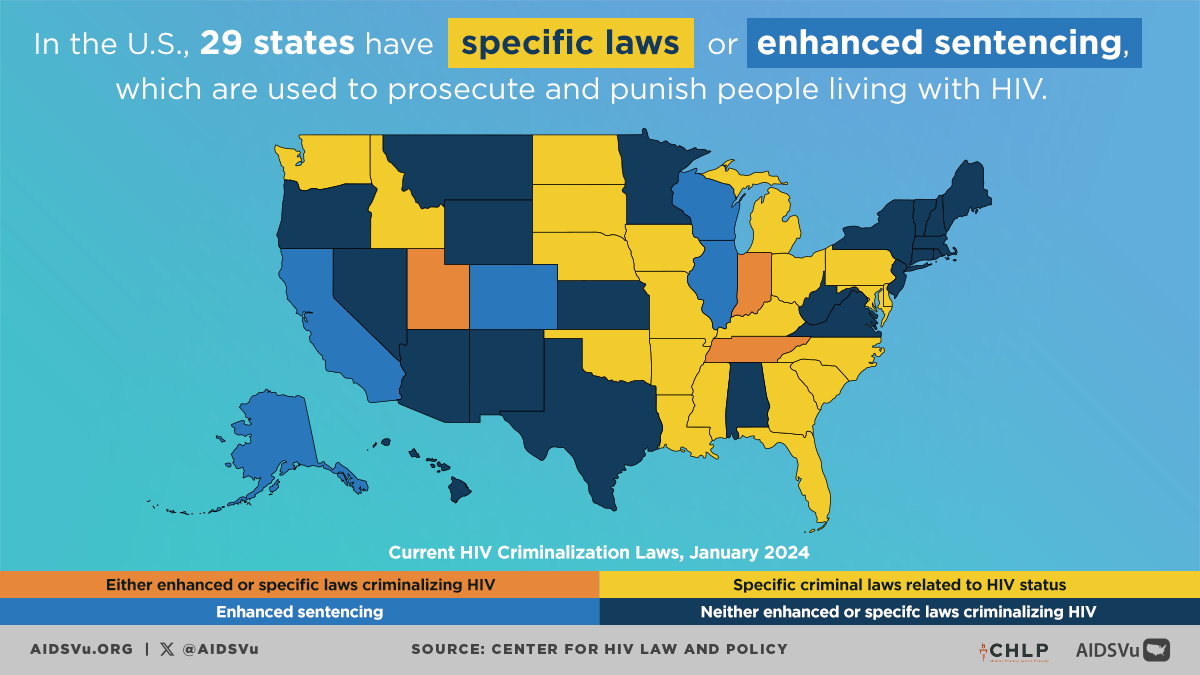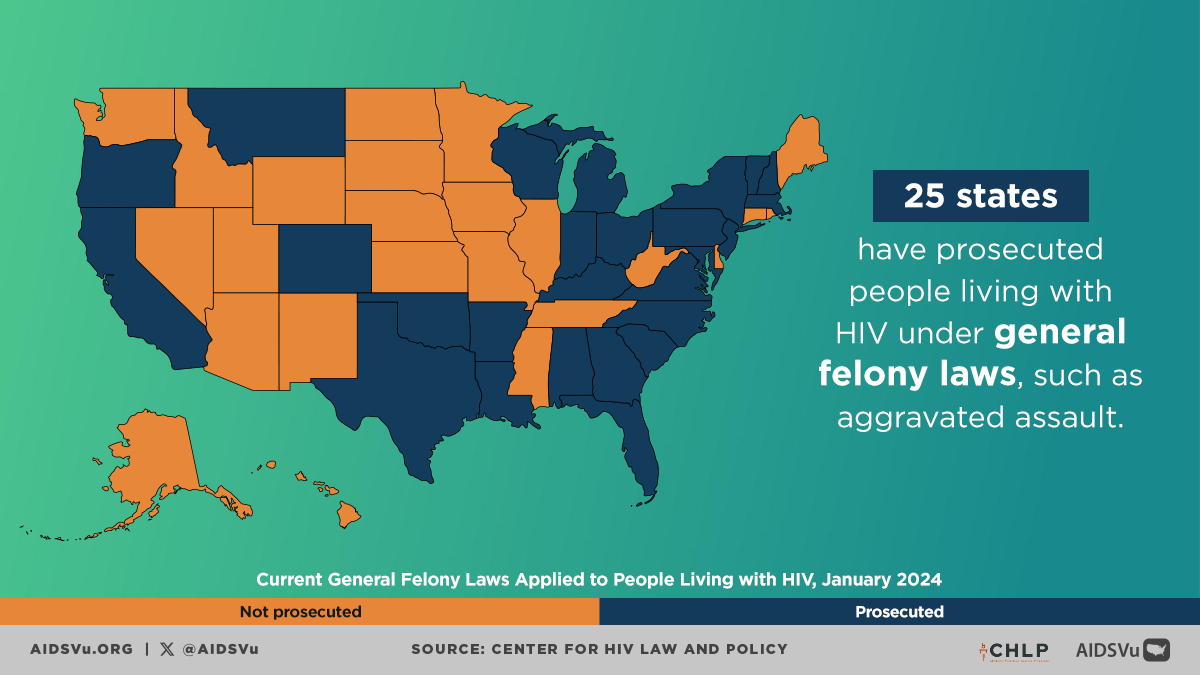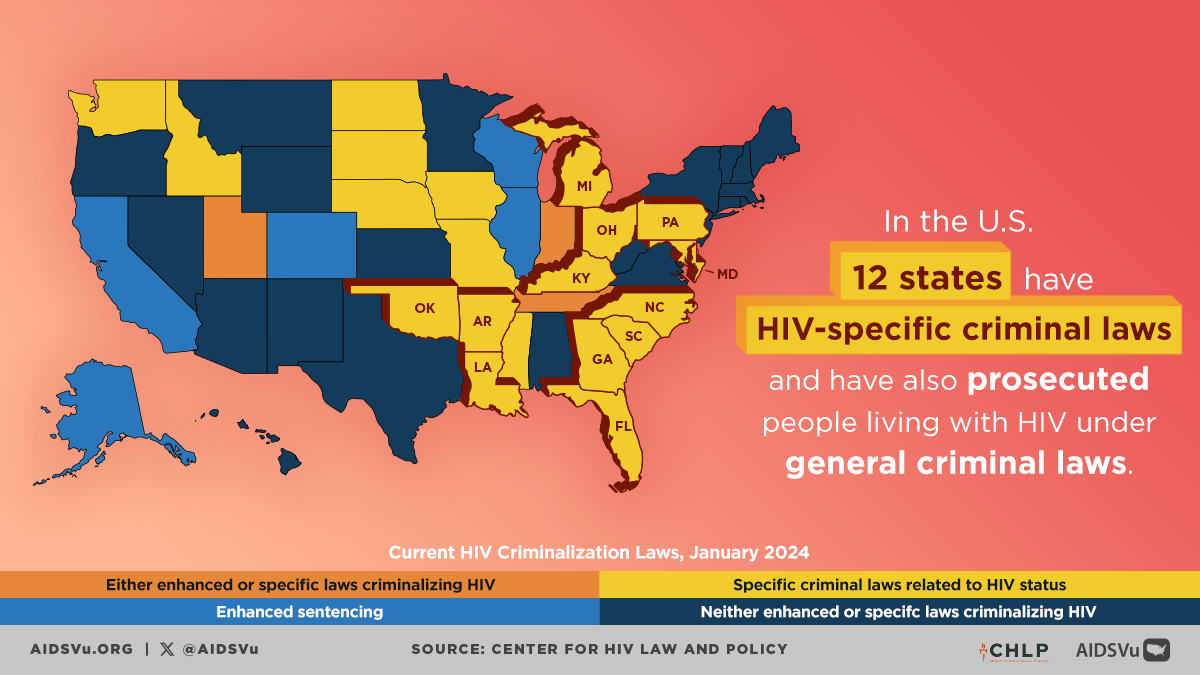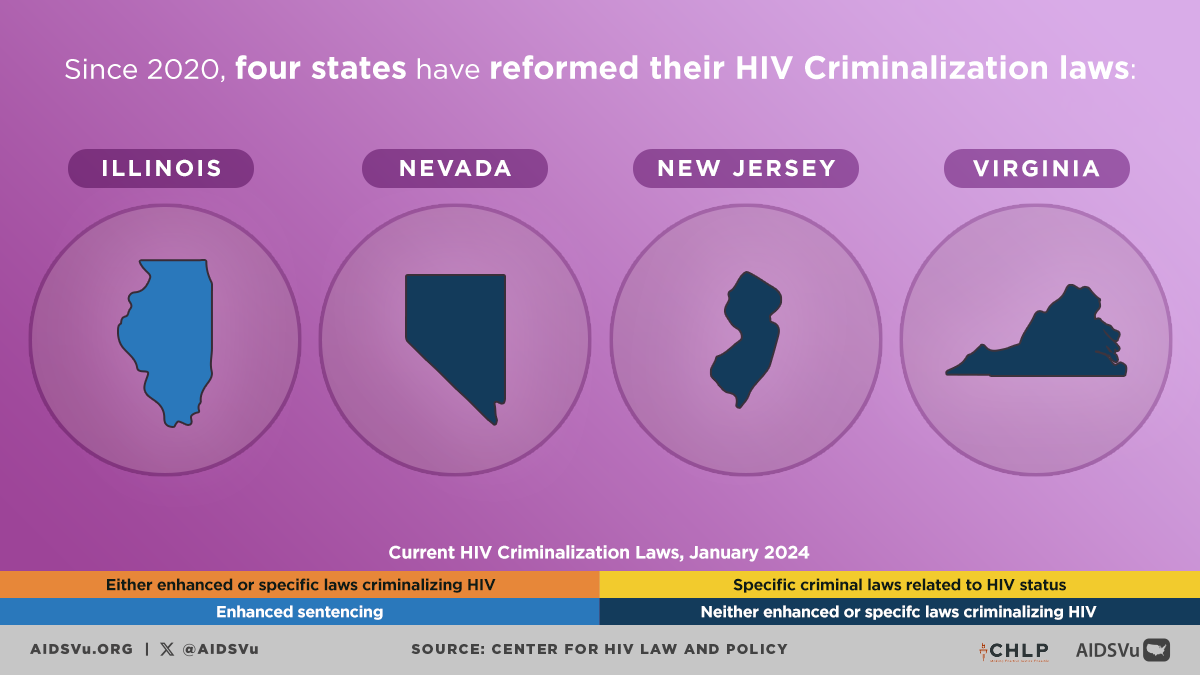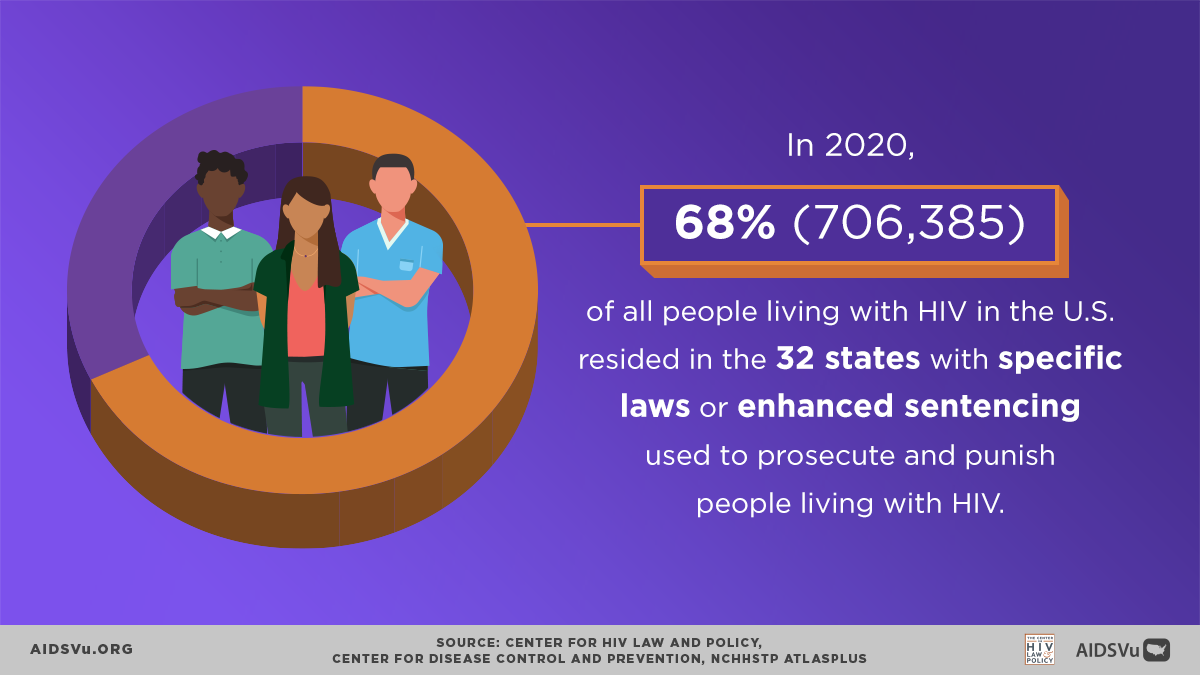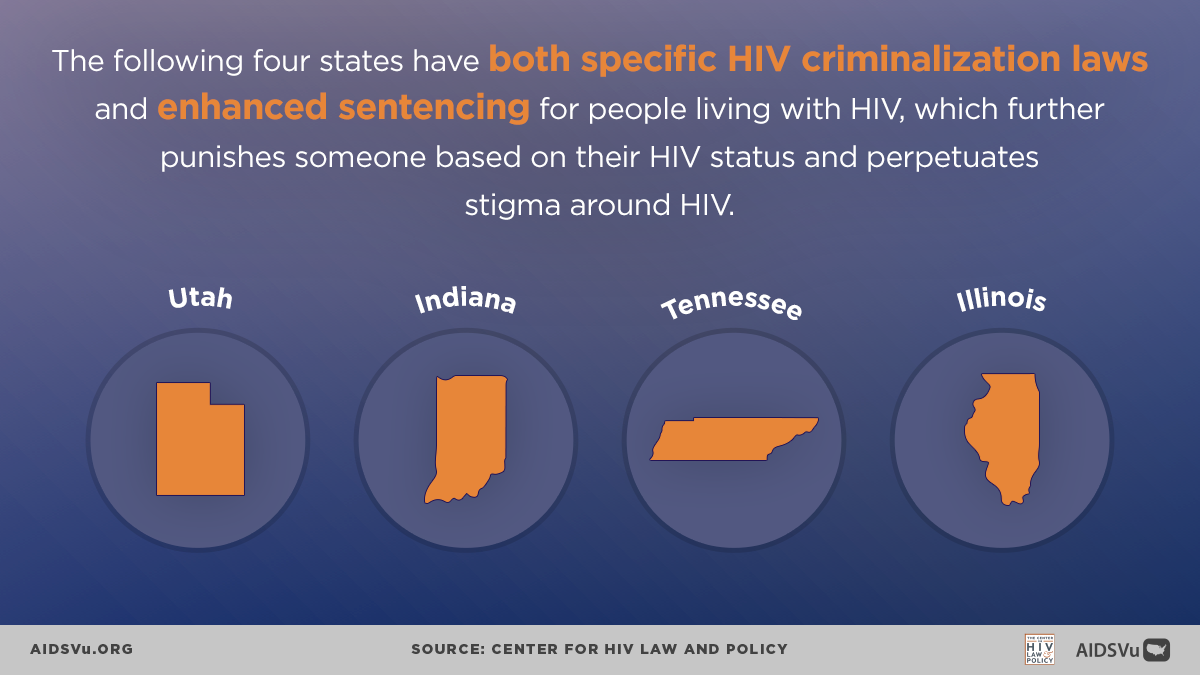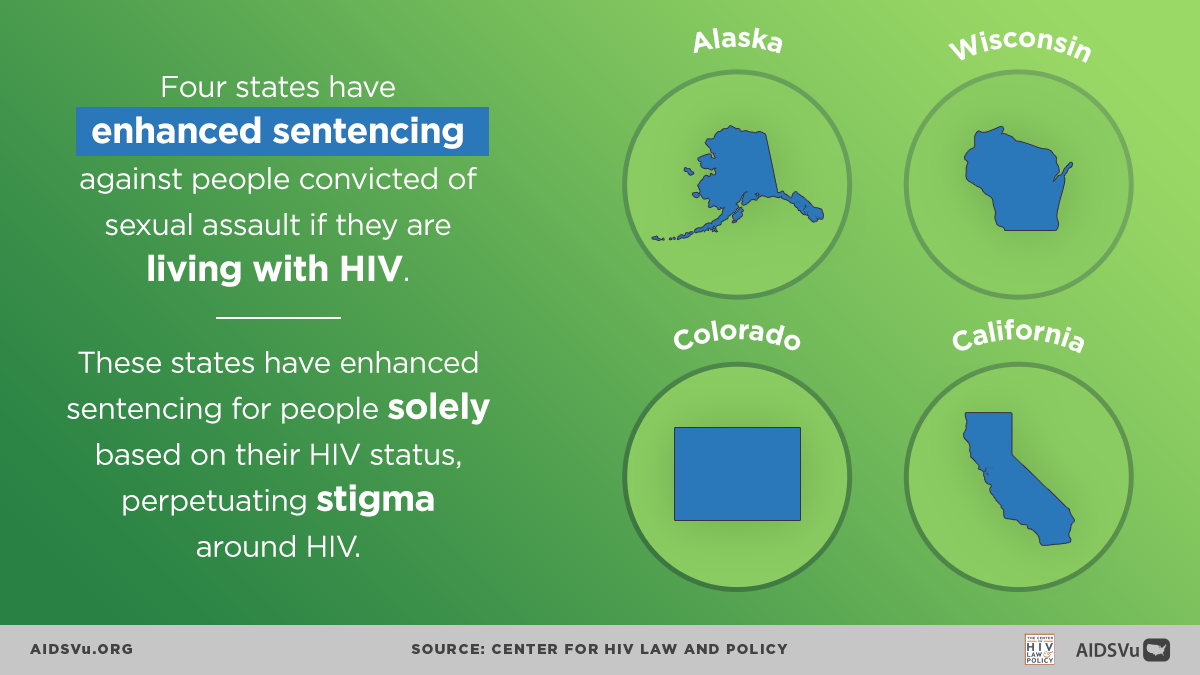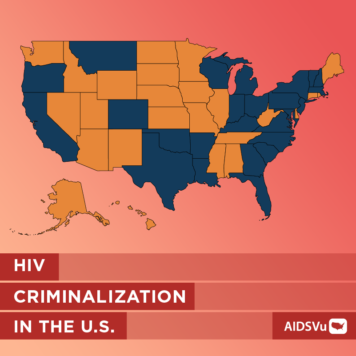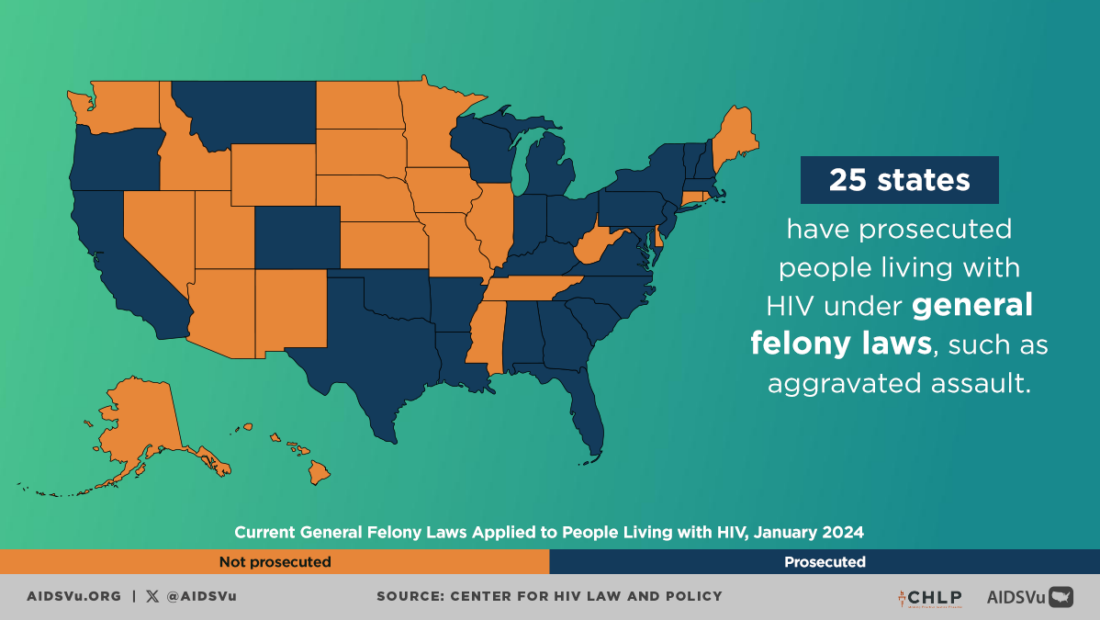
The criminalization of HIV transmission or exposure dates back to the early history of the HIV epidemic. In the 1980s, states began passing HIV-specific criminal exposure laws out of fear and unfounded beliefs about HIV’s transmission routes and risks. The legislative history in some states, such as Nevada, also reveals bias and perceptions of gay men as disease vectors.
These laws and statutes varied. Most established criminal penalties for failing to disclose HIV status to partners, for exposing others to the disease, and none required proof that transmission had occurred. Many of these laws could be used to target people living with HIV (PLWH) regardless of their intent or what protective measures they took to prevent passing HIV to their partner. Many of these laws show the lack of understanding with which legislatures approached HIV, reflecting false assumptions, including criminalizing biting or spitting by people living with HIV, even though you cannot transmit HIV through saliva.
Currently, 29 states and two U.S. territories still have laws that criminalize specific acts by PLWH.
After over 30 years of HIV research and significant biomedical advancements to treat and prevent HIV transmission—such as pre-exposure prophylaxis (PrEP), antiretroviral therapy (ART), and undetectable equals untransmittable (U=U)— these state laws are now outdated and do not reflect current scientific knowledge or practice. Furthermore, HIV is far more severely criminalized than other STIs, and this is disproportionate when it is a fully manageable condition.
Beyond the burden they place on individual lives, these laws may discourage HIV testing, increase stigma, and exacerbate health disparities.
Many states have enhanced sentencing for people living with HIV. An enhanced sentence increases a defendant’s sentence, fine, or other consequences beyond the normal range. Enhanced sentencing for HIV-related convictions is solely based on an individual’s positive HIV status and can include the following:
- Extended prison sentence
- Increased fines
- Mandatory sex offender registration
- Severe collateral consequences, such as access to housing and voting rights
Among the 29 states with specific HIV criminalization laws or enhanced sentencing, 25 states have prosecuted PLWH under general criminal laws, such as aggravated assault. The legal consequences and conditions of these HIV criminalization laws vary across the states. These laws reflect a lack of understanding of the current research and science on HIV transmission and have been shown to discourage HIV testing, perpetuate stigma against PLWH, and exacerbate disparities.
Similar to the HIV epidemic, HIV criminalization laws disproportionately affect marginalized populations such as communities of color, transgender women, and sex workers. These populations are more likely to be adversely affected by social determinants of health and racial inequities, which makes them more susceptible to contact with the criminal justice system and increases the possibility their HIV status will be used against them in a legal context.
The Legal Landscape
The legal landscape around HIV criminalization is varied and complex. The way in which states handle the criminalization of HIV can range from an increased sentence to registration as a sex offender, to serious prison time. What is specifically criminalized, and how those statutes are actually used by prosecutors also varies widely. The Center for HIV Law and Policy is the preeminent resource for understanding this legal landscape, providing detailed information on each state’s policies, precepts, and practices.
In very rare cases, there may be a legitimate basis for legal action against individuals who act with the attempt to transmit HIV. However, these legal pathways already exist in existing state laws. Redundant laws focused on one disease are unnecessary and further stigma and health inequities.
Decriminalizing HIV in the U.S.
States have been modernizing their HIV criminalization laws in recent years. Since 2014, thirteen states have instituted significant changes, including California, Colorado, Illinois, Iowa, Michigan, North Carolina, Texas, and Washington State. Four of these reforms have taken place since 2020, including Nevada, Illinois, New Jersey, and Virginia.
Some notable reforms include:
- Complete repeal of the HIV-specific laws (Texas, New Jersey and Illinois) (although prosecutions have continued under the general criminal law in Texas and New Jersey and Illinois still has HIV-specific sentence enhancements)
- Removing HIV prevention issues from the criminal code and including them under disease control regulations
- Eliminating sex offender registration for those convicted under the revised law
- Eliminating criminal penalties for blood, organ and bodily fluid donation
- Eliminating unique sentence enhancements for sex workers living with HIV
- Requiring intent to transmit
- Requiring actual HIV transmission
- Allowing the defense that the accused tried to prevent transmission through methods such as viral suppression, condom use, or a mutual agreement that the partner use PrEP to reduce transmission risk.
In a Dear Colleague Letter published in the January 2021 Lancet HIV, Centers for Disease Control and Prevention (CDC)’s Dr. Jonathan Mermin, Director National Center for HIV/AIDS, Viral Hepatitis, STD, and TB Prevention, and Dr. Demetre Daskalakis, Director, Division of HIV/AIDS Prevention National Center for HIV/AIDS, Viral Hepatitis, STD, and TB Prevention, asserted that the time had come “…to align HIV-specific criminal exposure laws with science and consider reforming, rescinding, and revising the application of relevant laws for the sake of people with HIV and for the public’s health.” Efforts to reform HIV criminalization laws continue across the country, spearheaded by advocates and stakeholders across the HIV community.
HIV Criminalization on AIDSVu
Due to the importance of this issue, AIDSVu has added two state-level interactive comparison maps to the site:
- A map showing the current state of HIV criminalization laws, as of July 2022 (update to January 2024 coming soon)
- A map showing general criminal laws and how they are applied to people living with HIV, as of July 2022 (update to January 2024 coming soon)
These maps can be compared alongside other HIV-related maps, such as new diagnoses, prevalence, PrEP use, and mortality. These maps were originally created by the Center for HIV Law and Policy and have been added to AIDSVu to allow for ease of comparison with other HIV-related data.
5 Ways to Use AIDSVu
View local statistics
National-, state-, and city-level profiles including data on HIV criminalization.
Learn MoreExpert blogs
Stay up to date with the latest Q&As from experts on HIV criminalization and more.
Learn More

